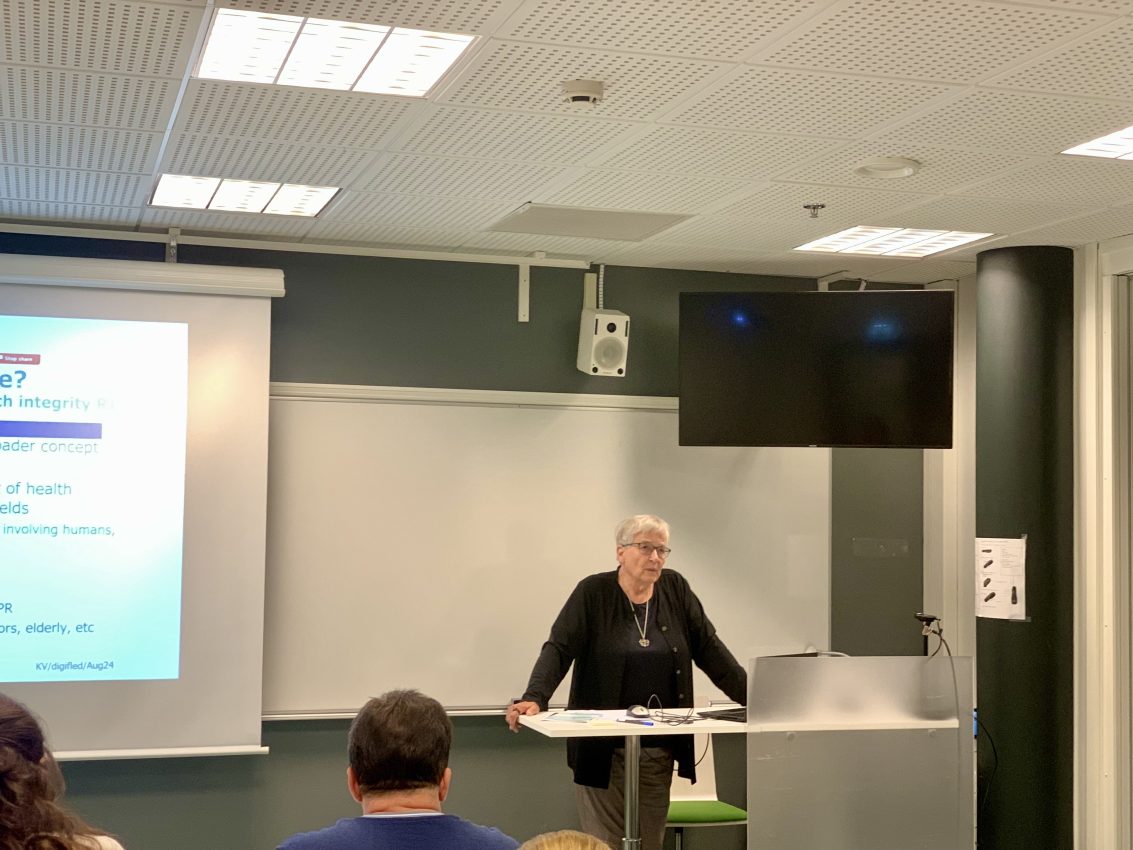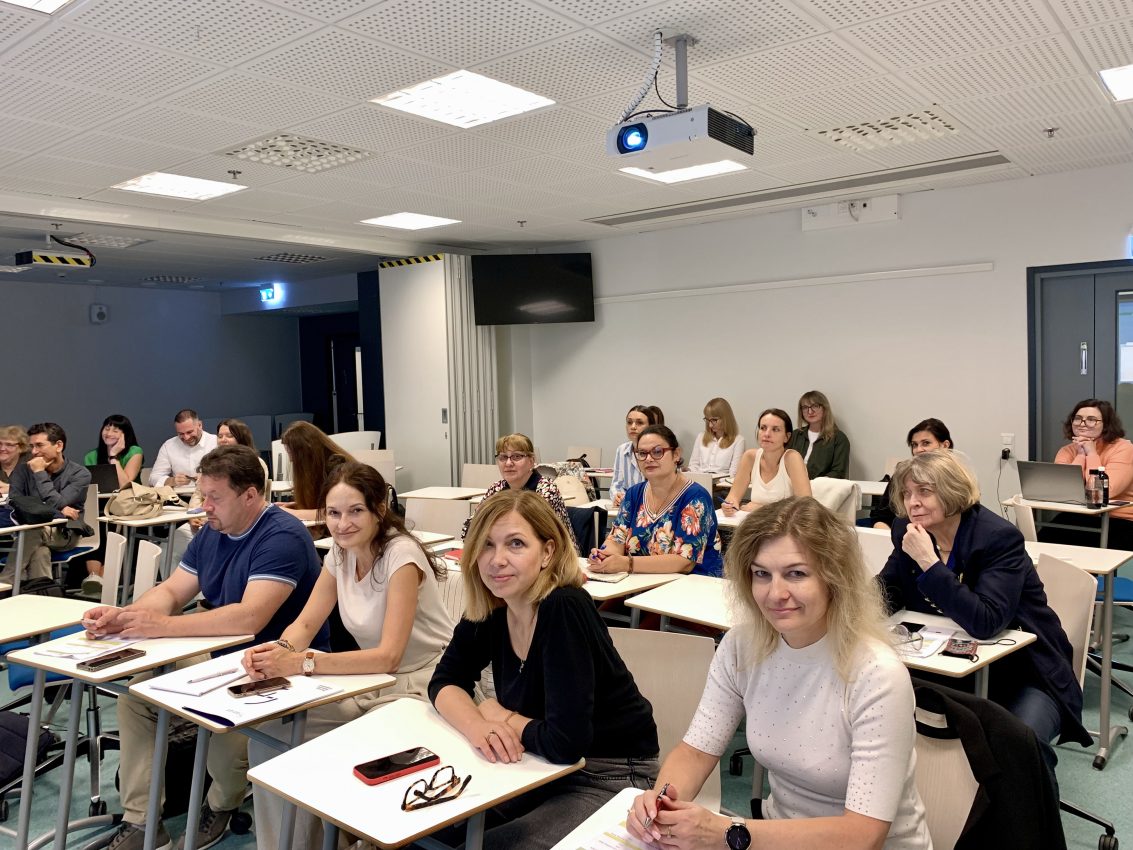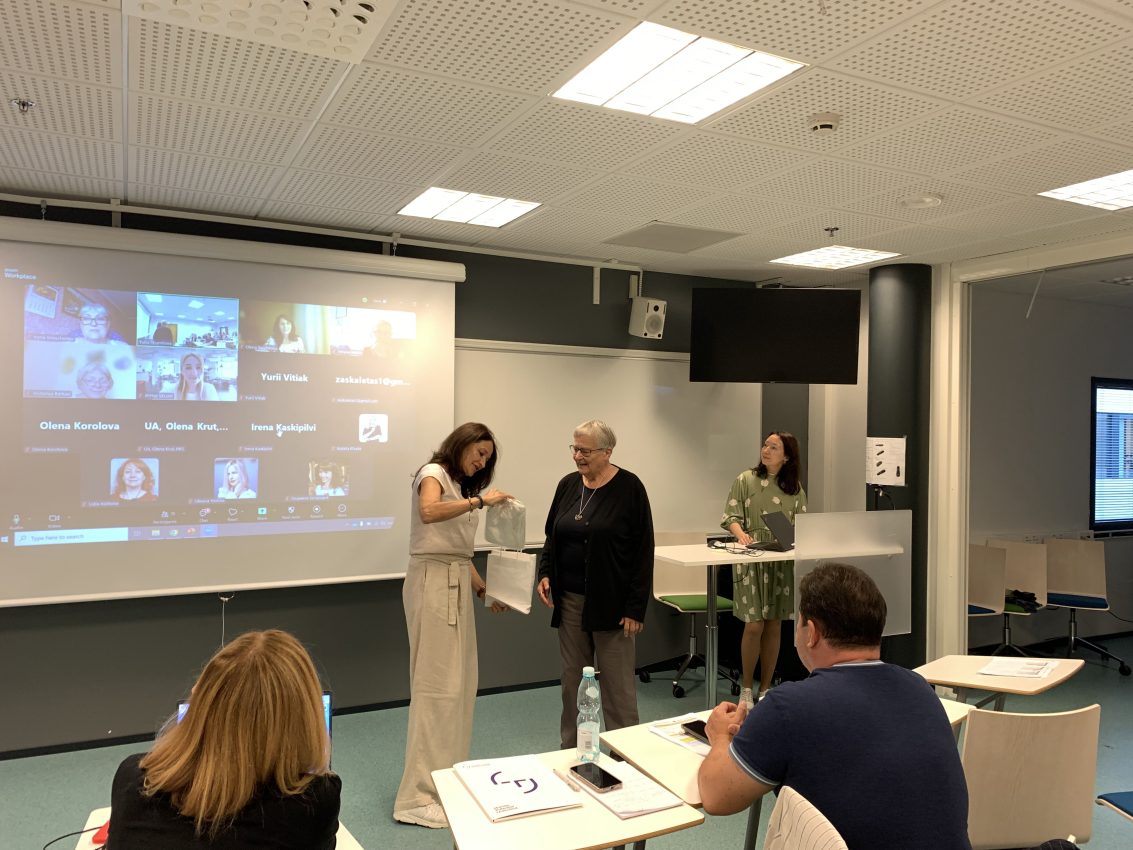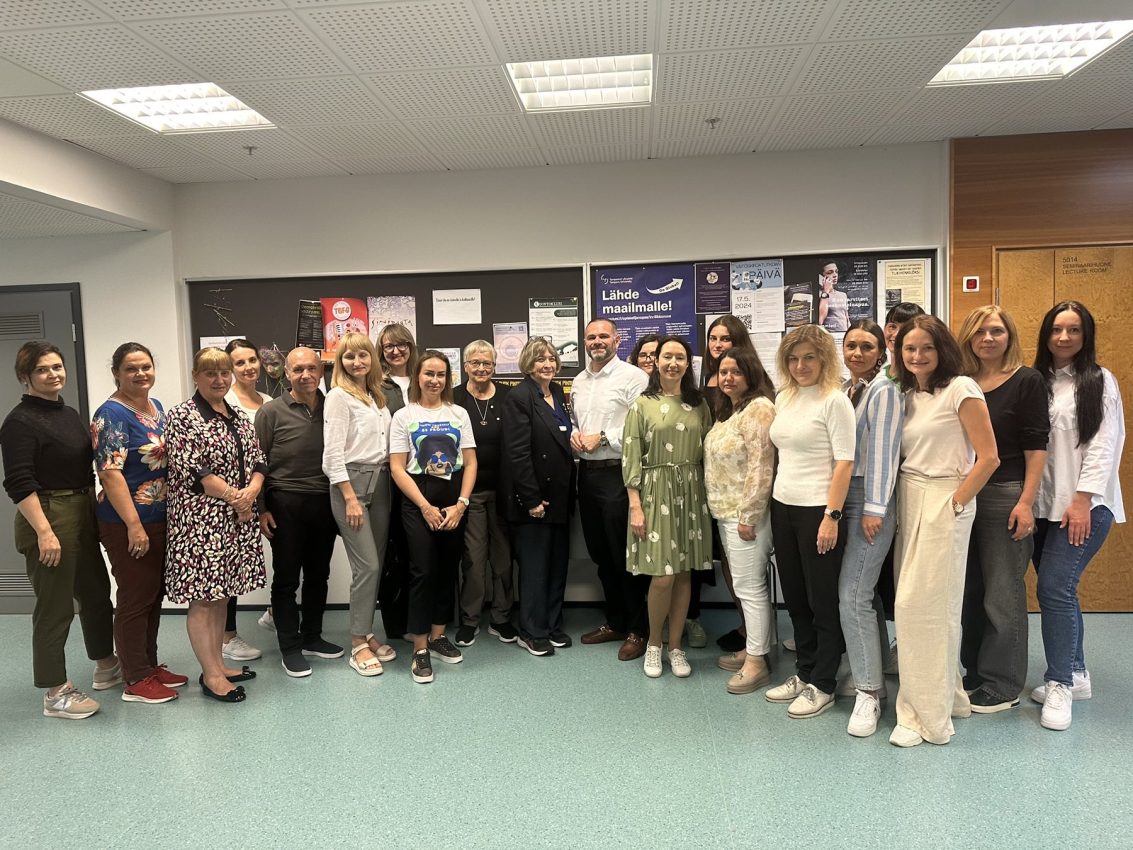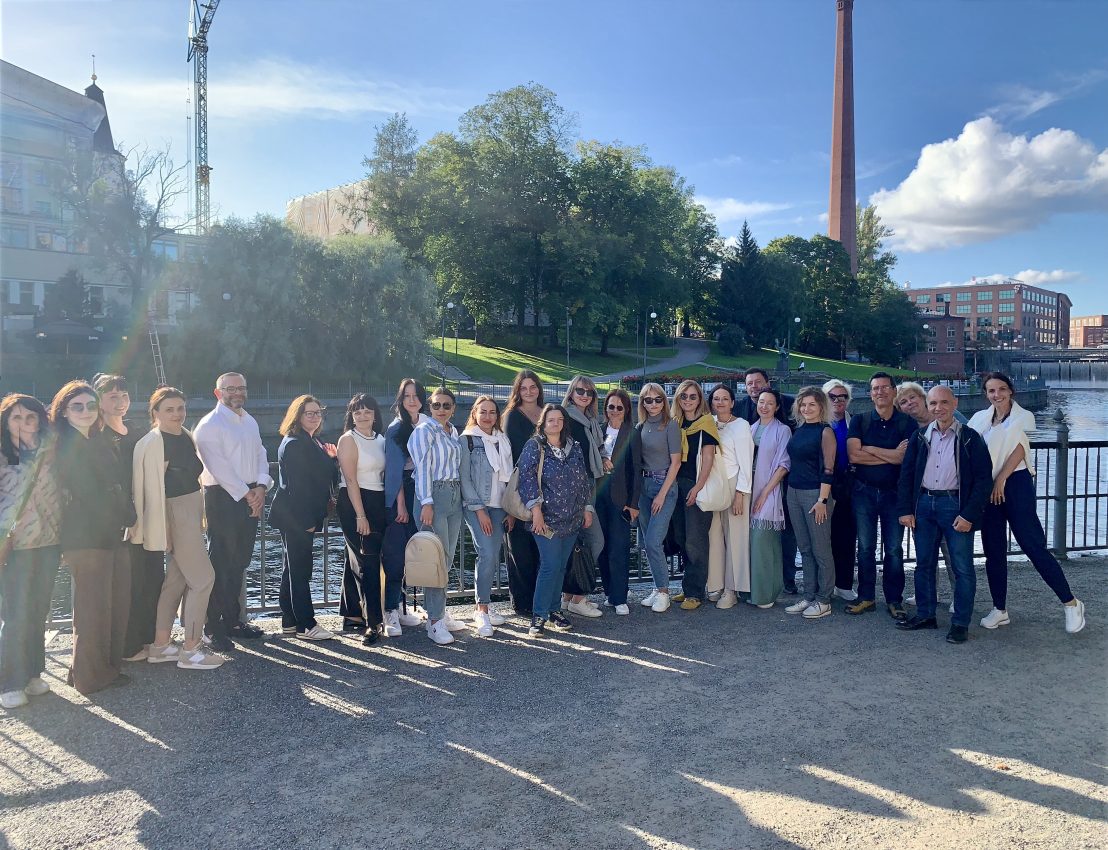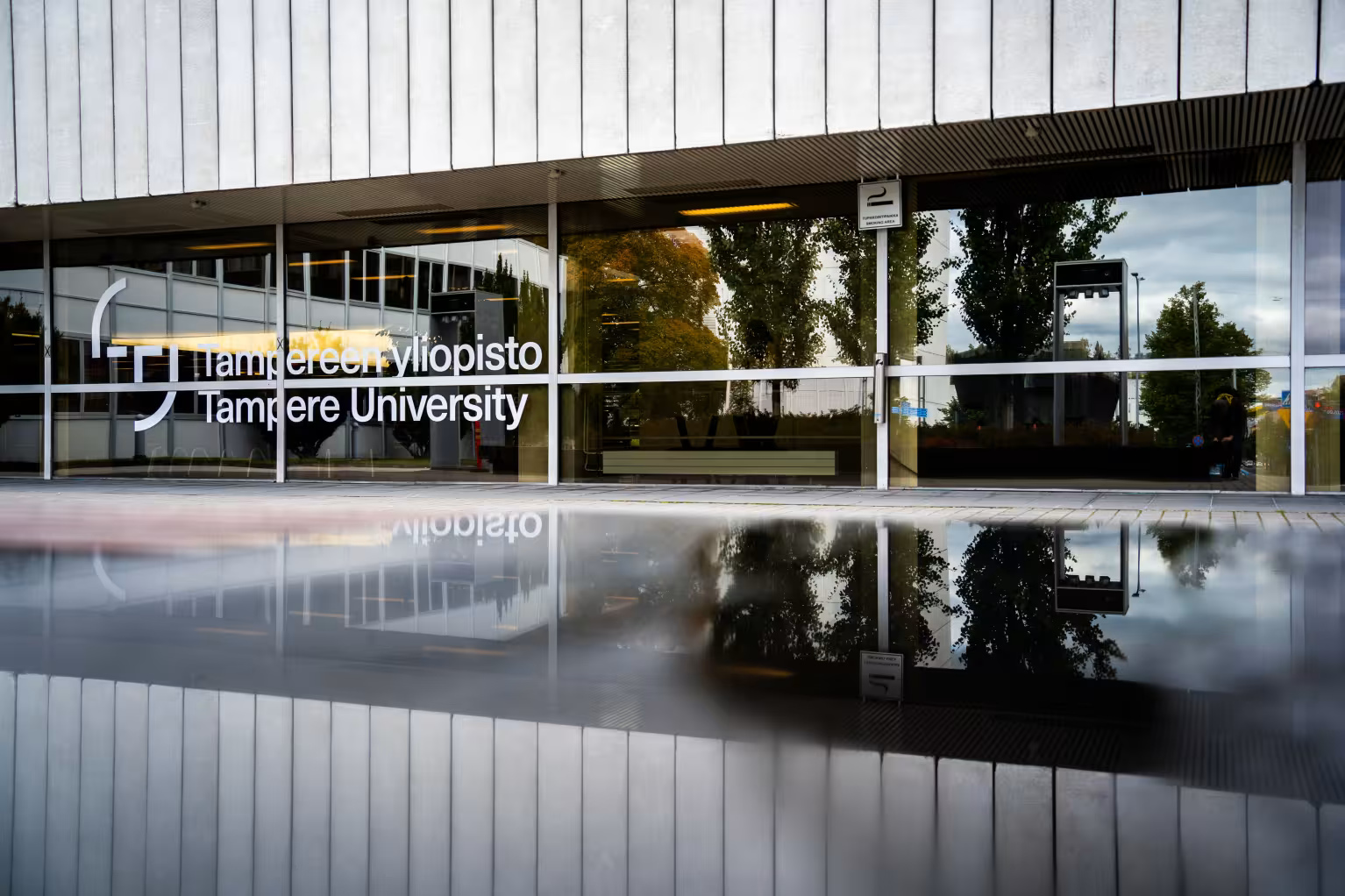From August 19 to 23, the third educational visit took place within the framework of the Erasmus+ DigiFLEd international project. This time, the GIIIM team visited the University of Tampere, Finland.
The working group was represented by the project manager, Assoc. Department of English Philology and Translation Marinand Peeler, Assoc. Department of English Philology and Translation Olenand Yasinetskand, Assoc. department of Germanic philology Roman Sytniak. The rest of the GIIM team participated online in workshops and lectures throughout the five-day visit.
Day 1.
The participants of the project were welcomed by the representatives of the University of Tampere, in particular the vice-president for education Marja Sutela, content manager project Kate Moore and project coordinator Julia Shumilova.
Mattia Thibault, associate professor of the department of translation in creative industries, held a lecture "Gamification and the power of play". The listeners got acquainted with the theoretical foundations of gamification, its impact on the cognitive, social and emotional motivation of students, learned about the most popular platforms that use game elements in education.
Lecture Miia Santalahti, leading scientist of the Faculty of Information Technologies and Communications of TU, addressed the topic of modern trends in professional translation and the possibilities of translation memory tools (memoQ, Wordfast, Phrase, Trados).
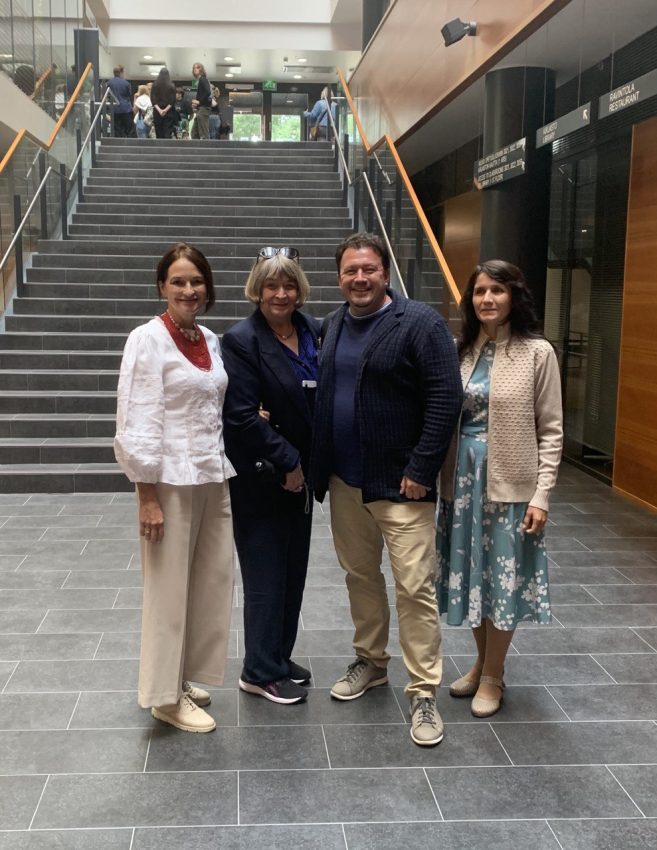
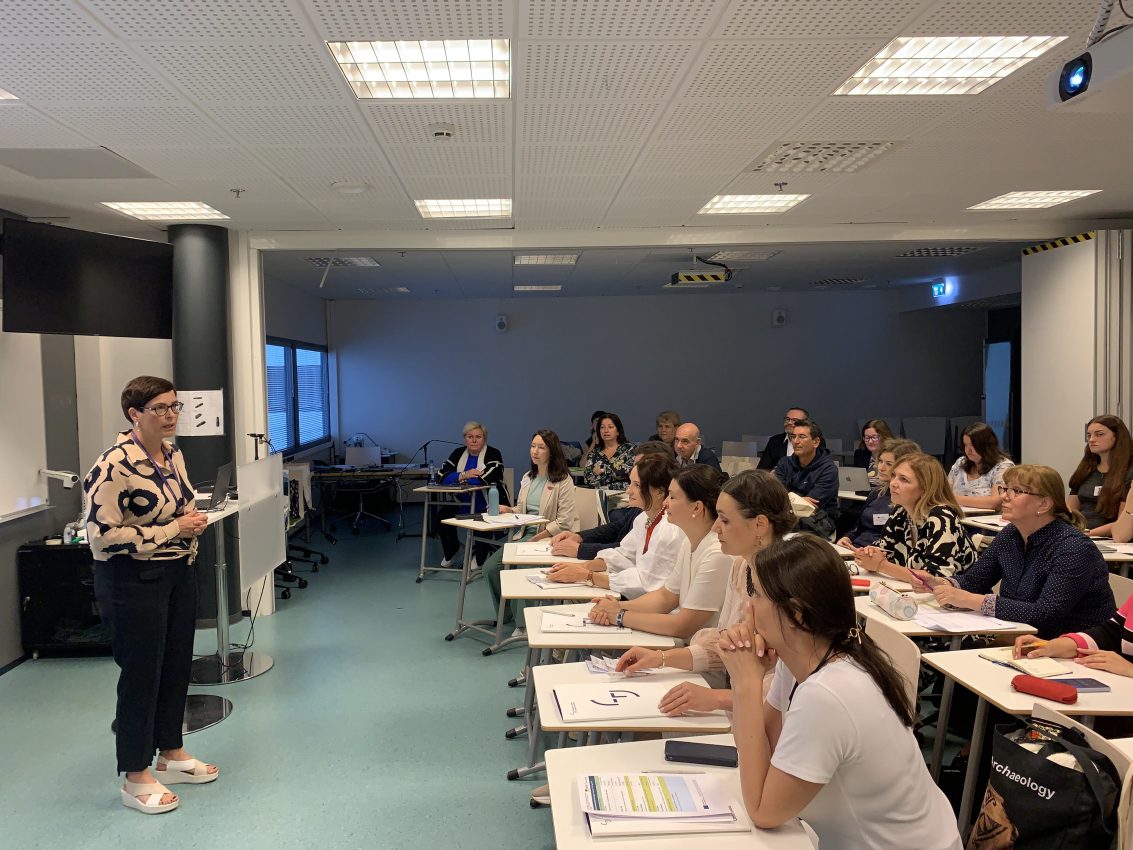
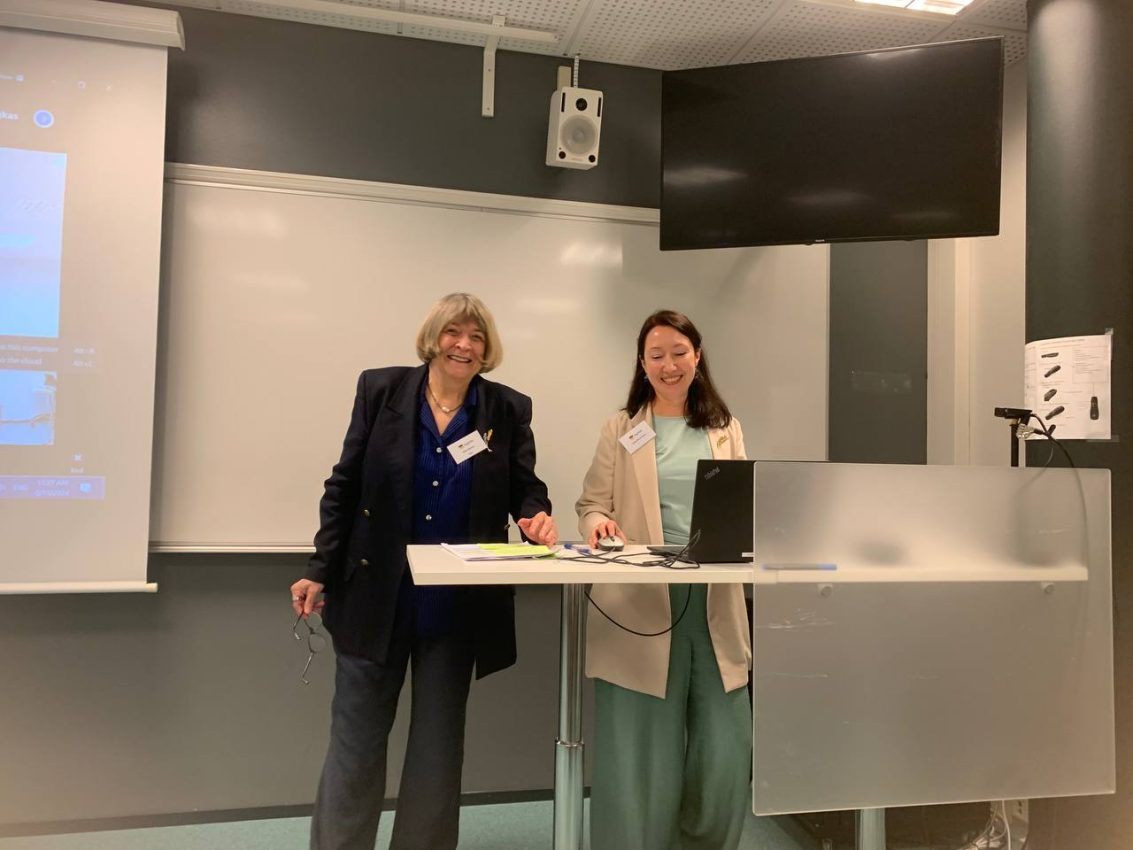
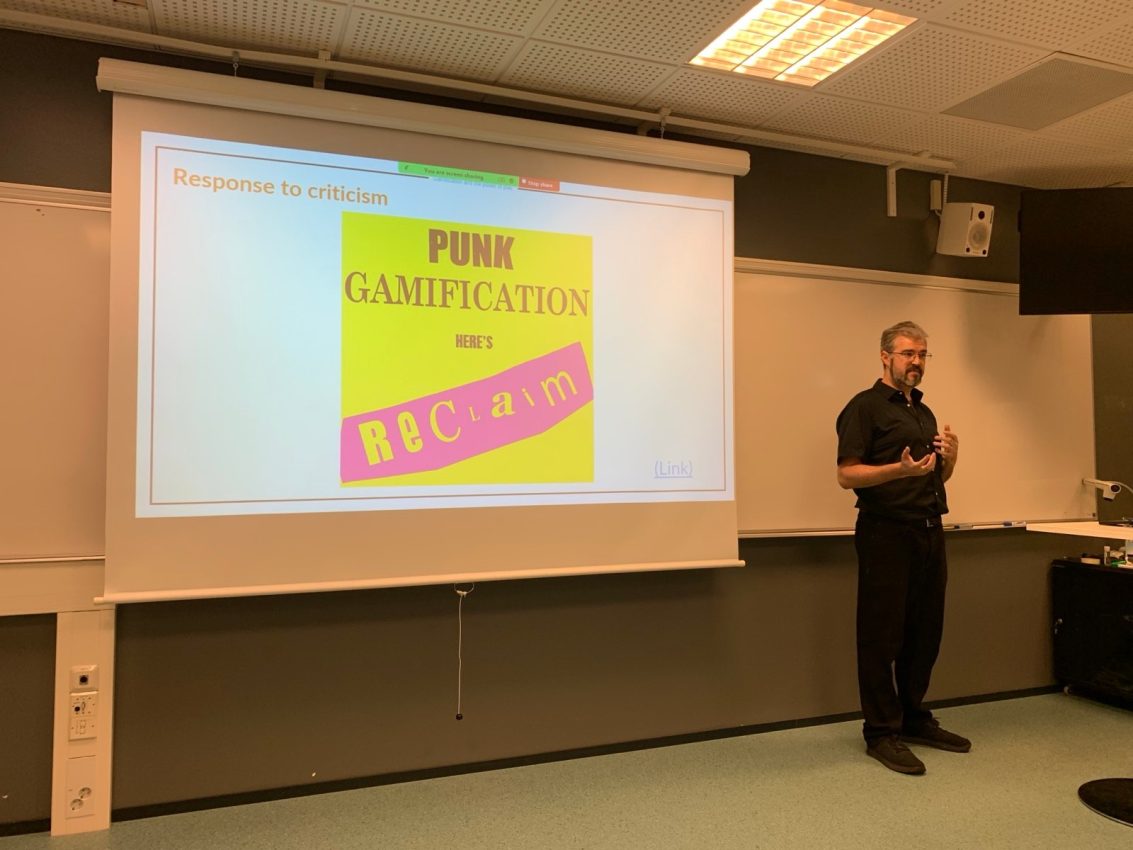
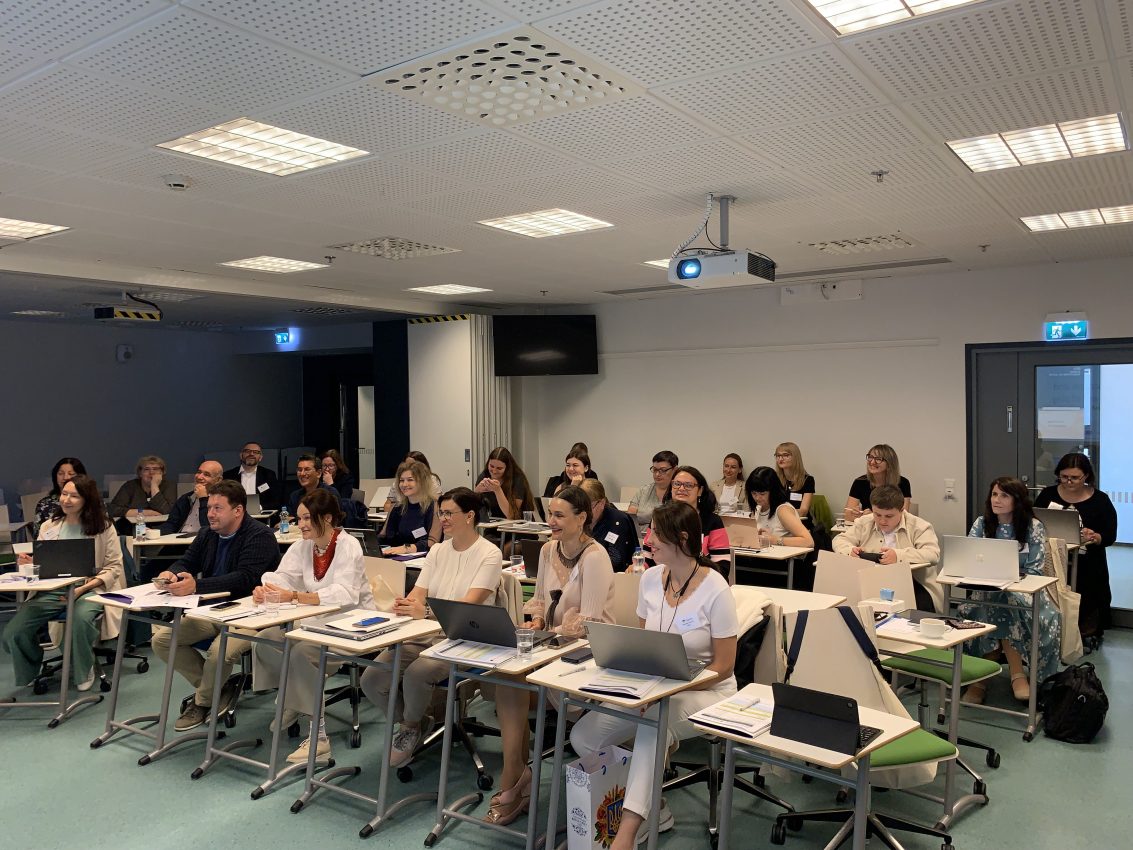
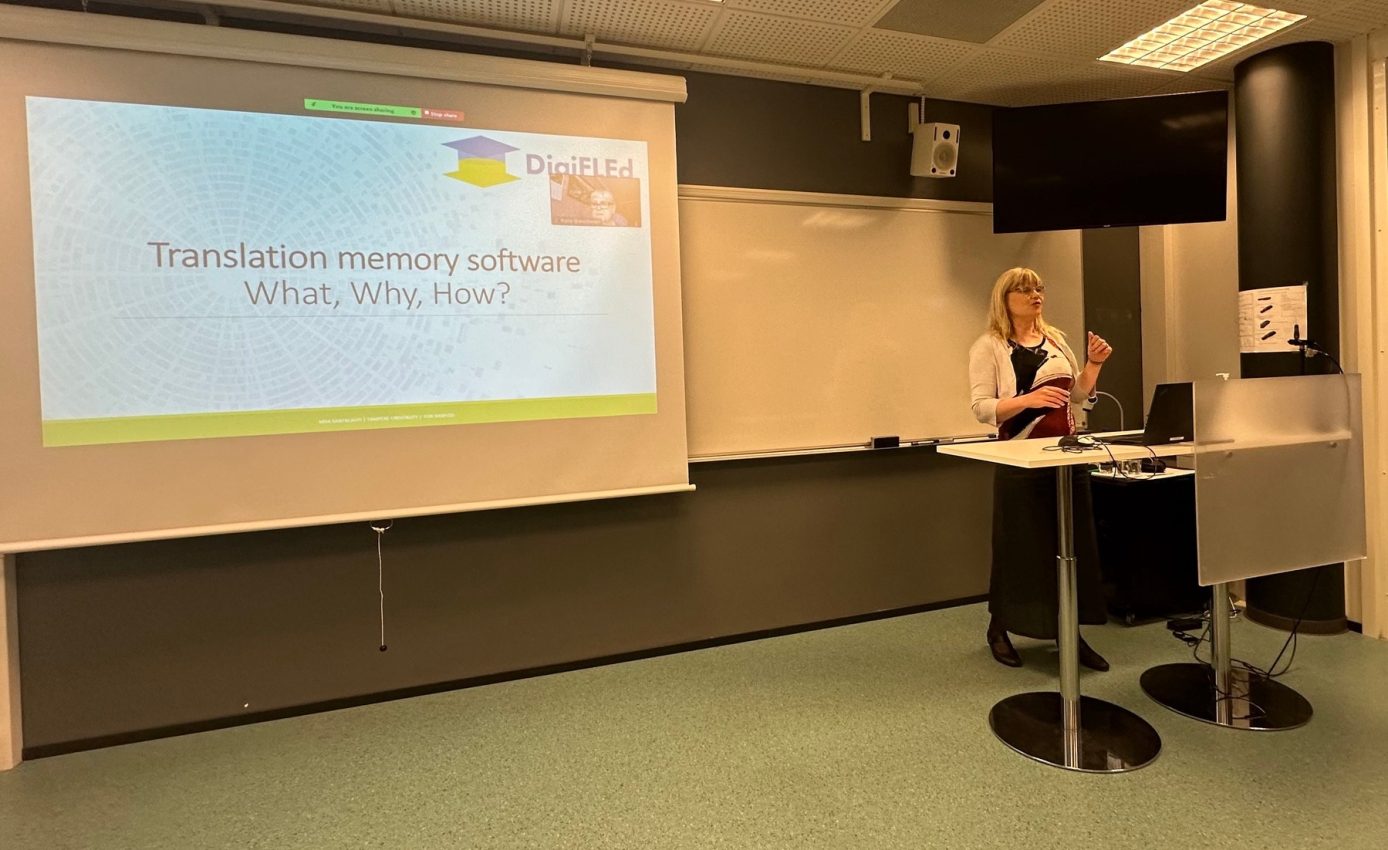

Day 2.
During the four days of the study visit Mia Santalahti conducted a series of workshops in the laboratory of the language center of the faculty of information and communication technologies.
A modern professional translator must possess not only excellent language and communication skills, but also be competent in the field of information technologies. The participants of the visit learned to work in Trados Studio 2022, a software package for automated translation. The trainer showed how to configure all the functional components of the program.
Teacher of the Faculty of Education and Culture Darrell Wilkinson introduced the participants to the digital tools "Lexical Tutor", "Multiling Profiler", "Text Inspector", "AntWordProfiler", "Lexicool". These tools allow you to analyze the written works of the acquirers. With the help of additional tools "Talkpal", "Mentimeter", "Padlet" you can improve students' vocabulary and ensure joint learning. Such work opens completely new opportunities for improving the educational process.
The trainees gained valuable knowledge about many useful machine translation tools and their capabilities during the master class Mary Nurminen, teachers of the Faculty of Information Technologies and Communications.
According to the researcher, there is a tendency to believe that people use automatic translation tools only for personal or unimportant things. However, raw machine translation can also be used for different purposes, such as for education and work. Training participants practiced identifying and analyzing machine translation errors.
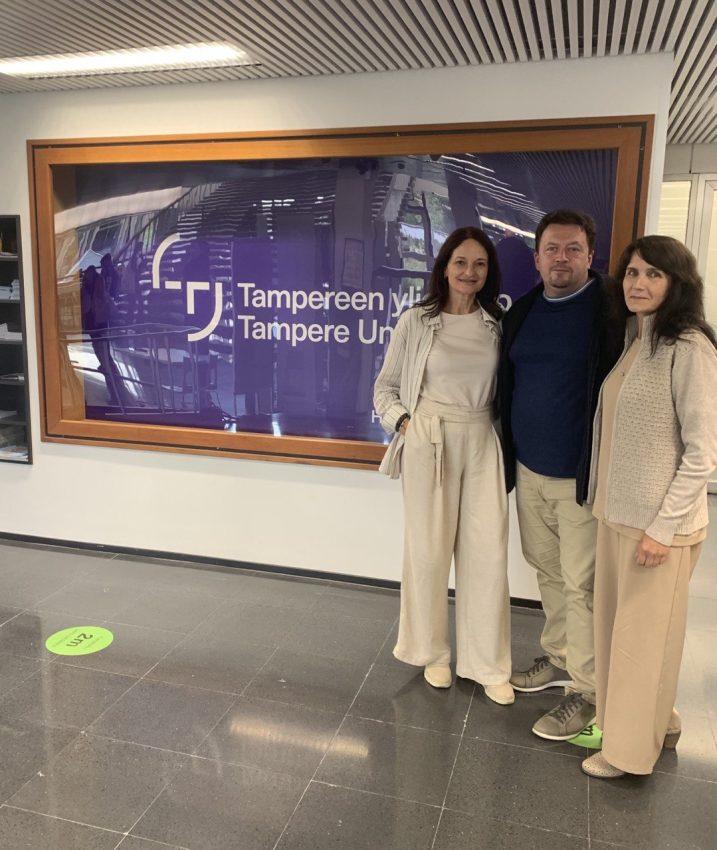
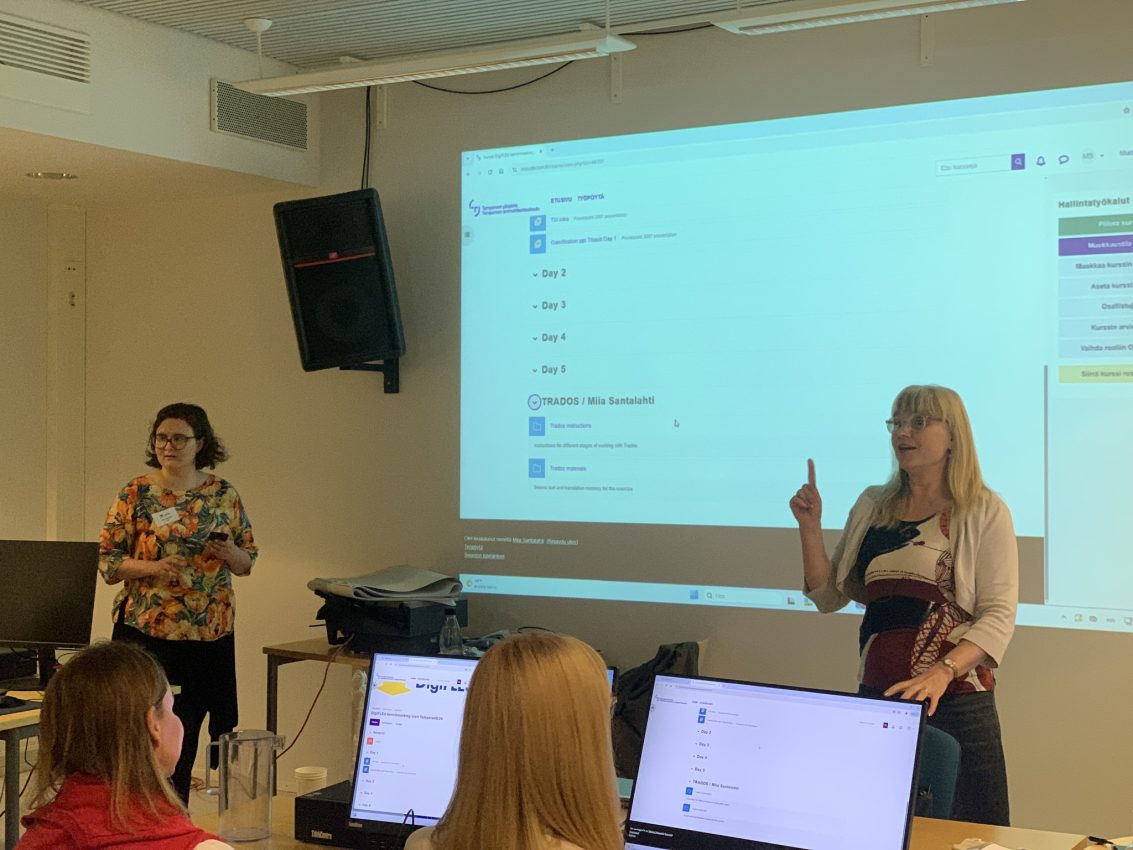
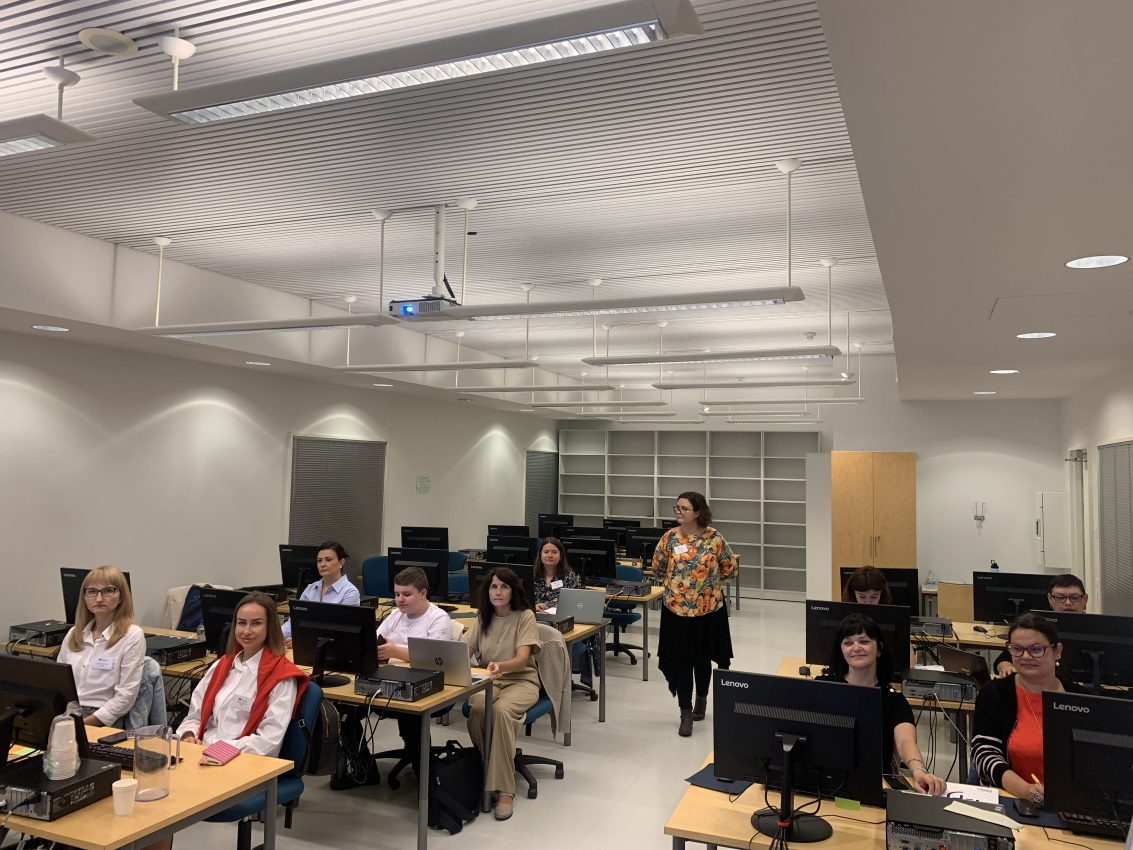
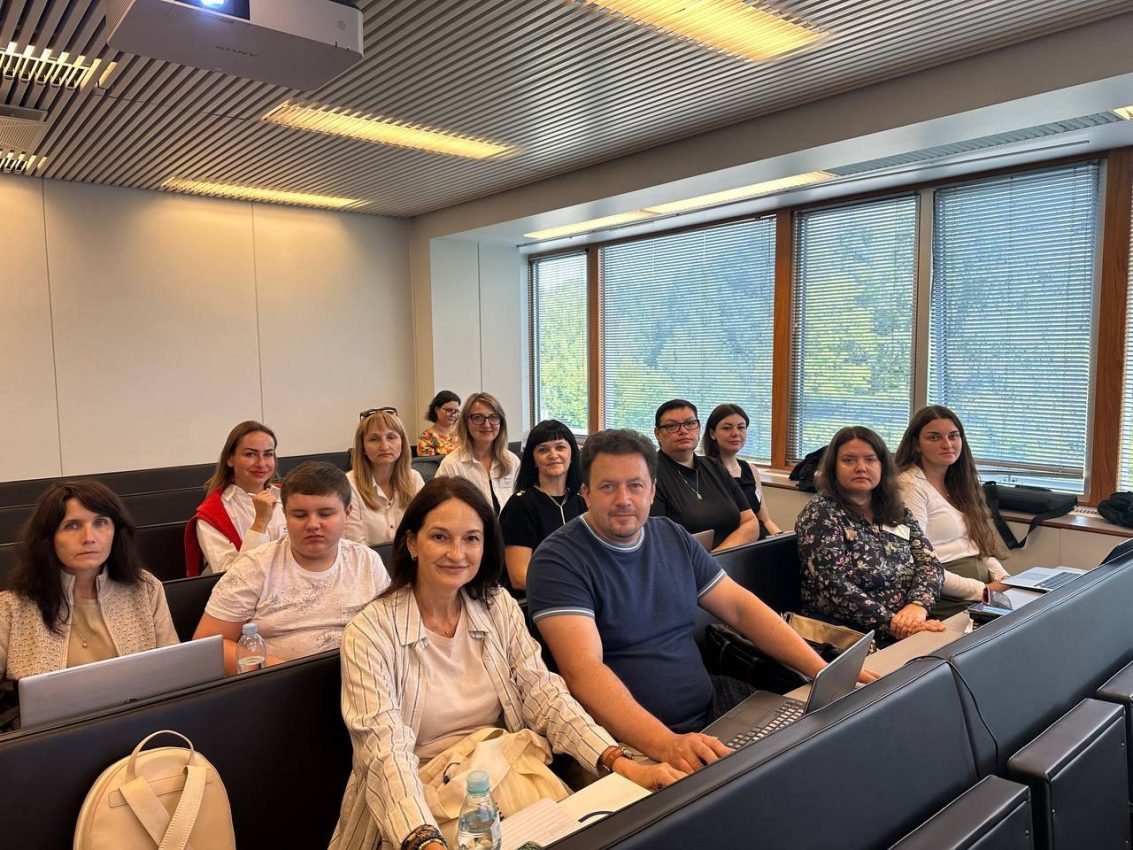

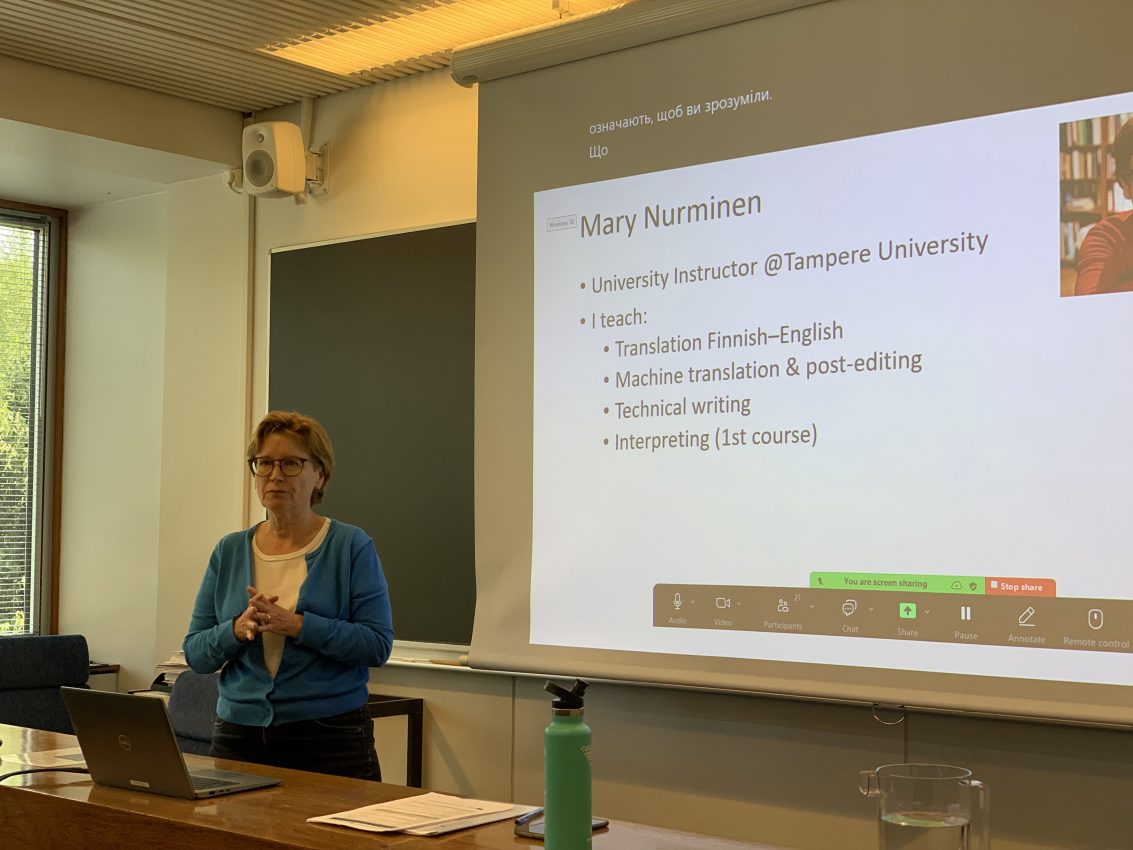
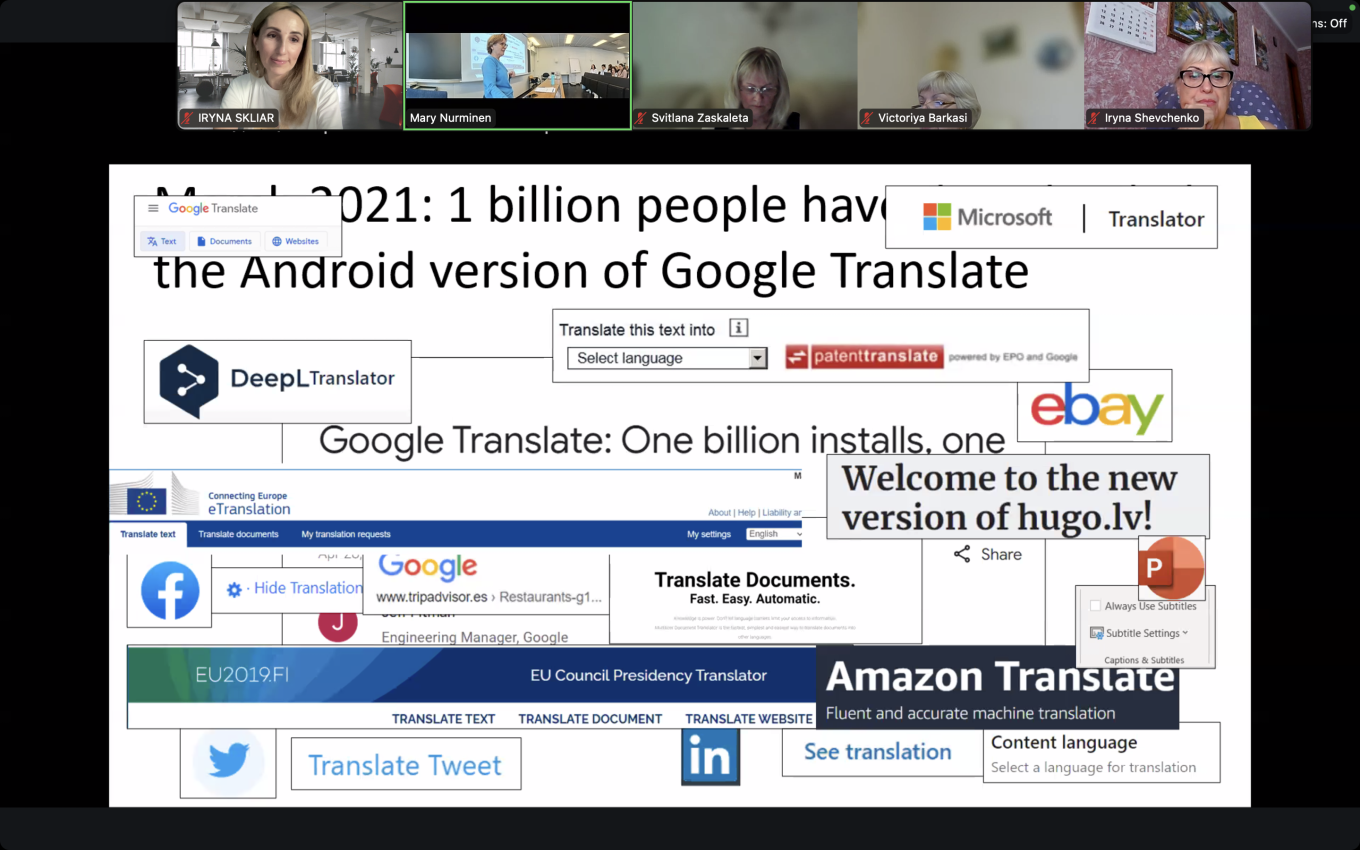
Day 3.
The GIIIM team continued to deepen their knowledge about the capabilities of the Trados Studio program and practice practical skills under the guidance of Mia Santalahti. The translation in Trados Studio was carried out in compliance with all the nuances of formatting, actual translation, correction and approval of each element.
Kate Moore, professional editor and translator, shared with the listeners expert knowledge in the field of academic publishing. She demonstrated exercises that will help students master formal and informal writing styles.
The topic "Using Screencast software for combined visual and audio feedback on written assignments" was discussed at a meeting with Darrell Wilkinson. An expert in the field of educational technology presented his own experience using ScreenPal. ScreenPal is a tool for creating combined visual and audio feedback on student writing that can also be used in flipped/blended learning.
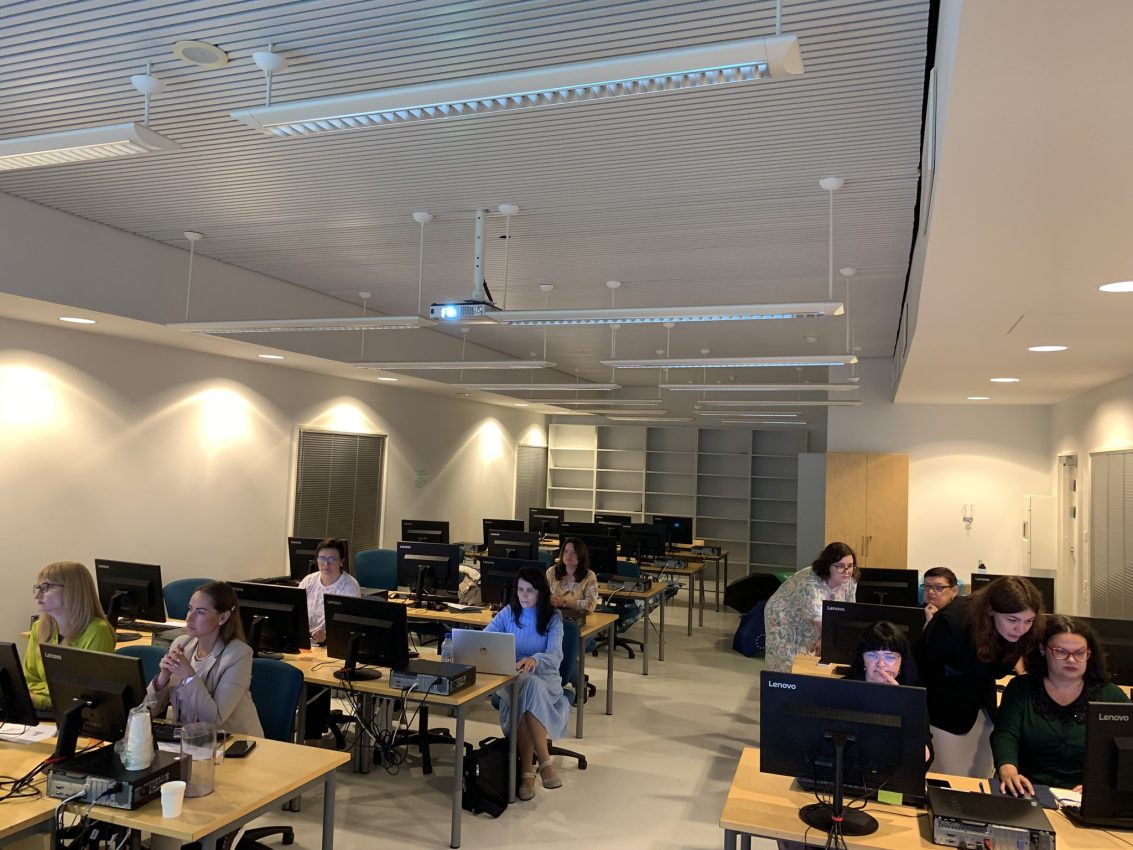
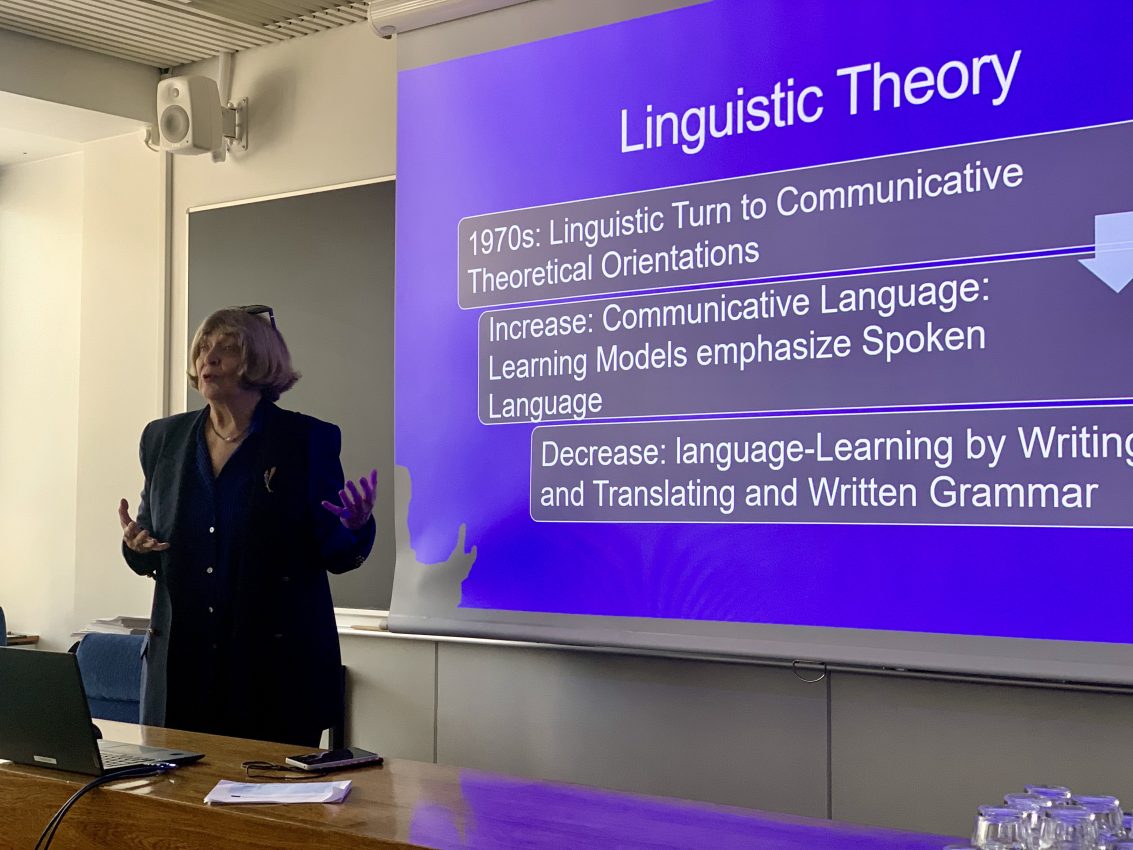
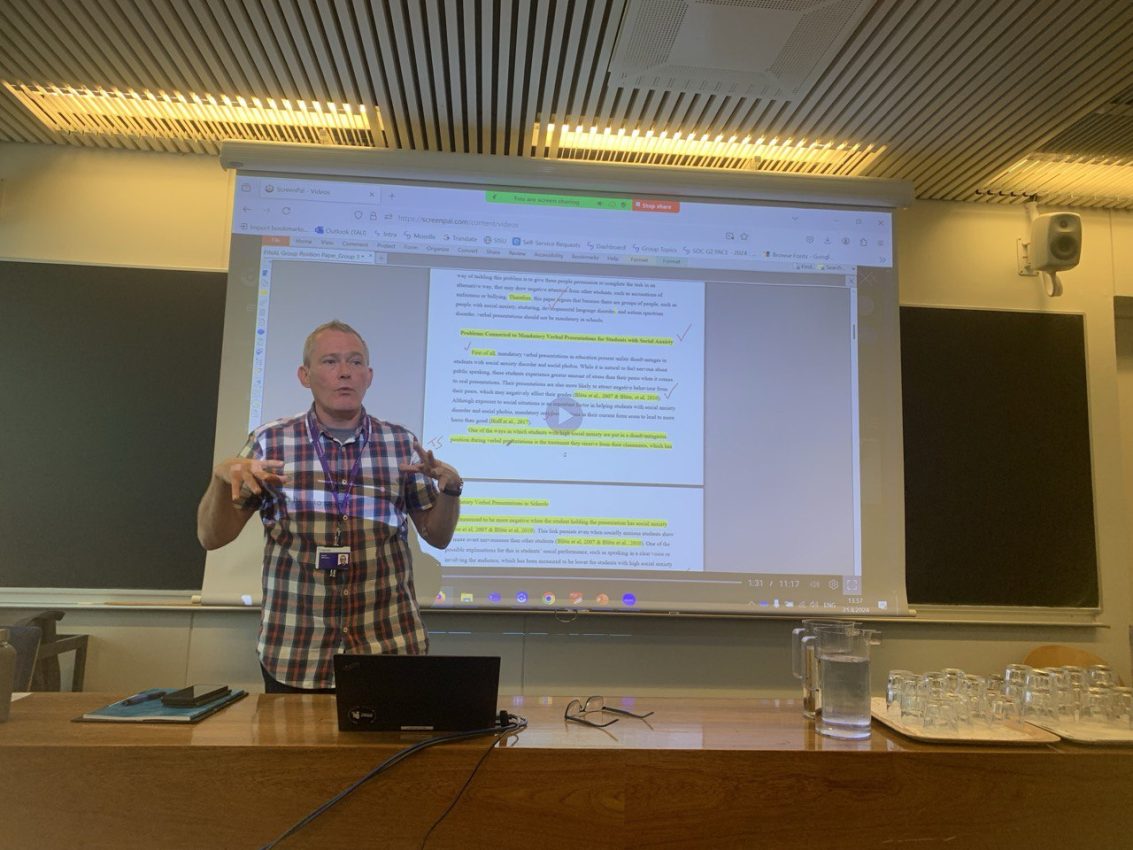
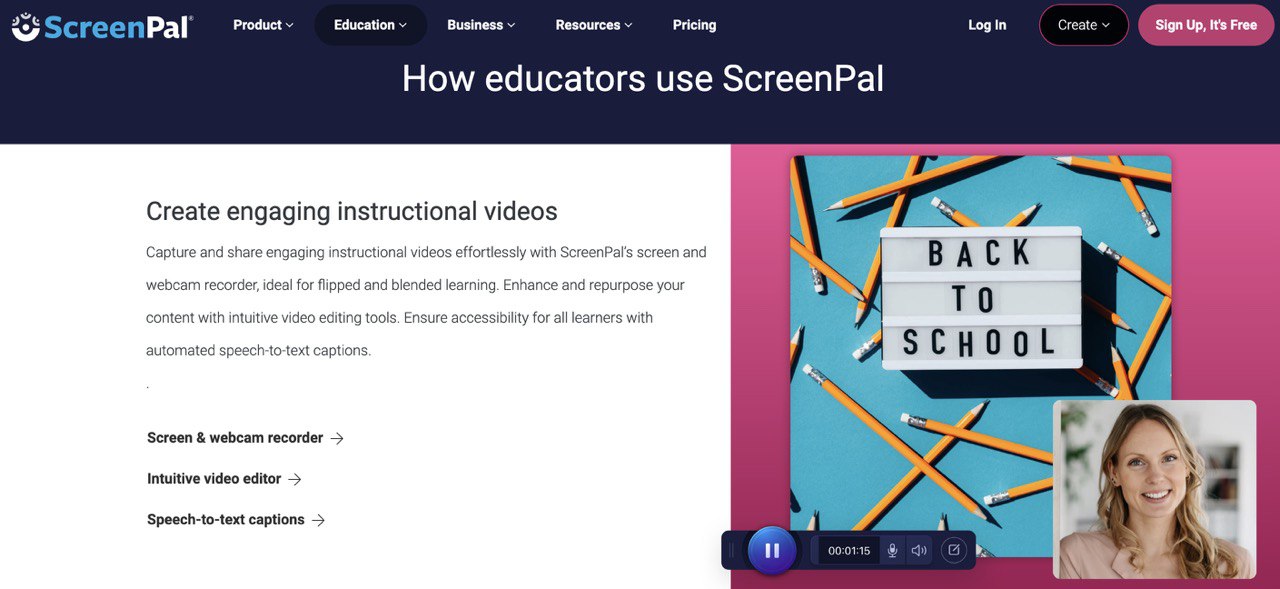
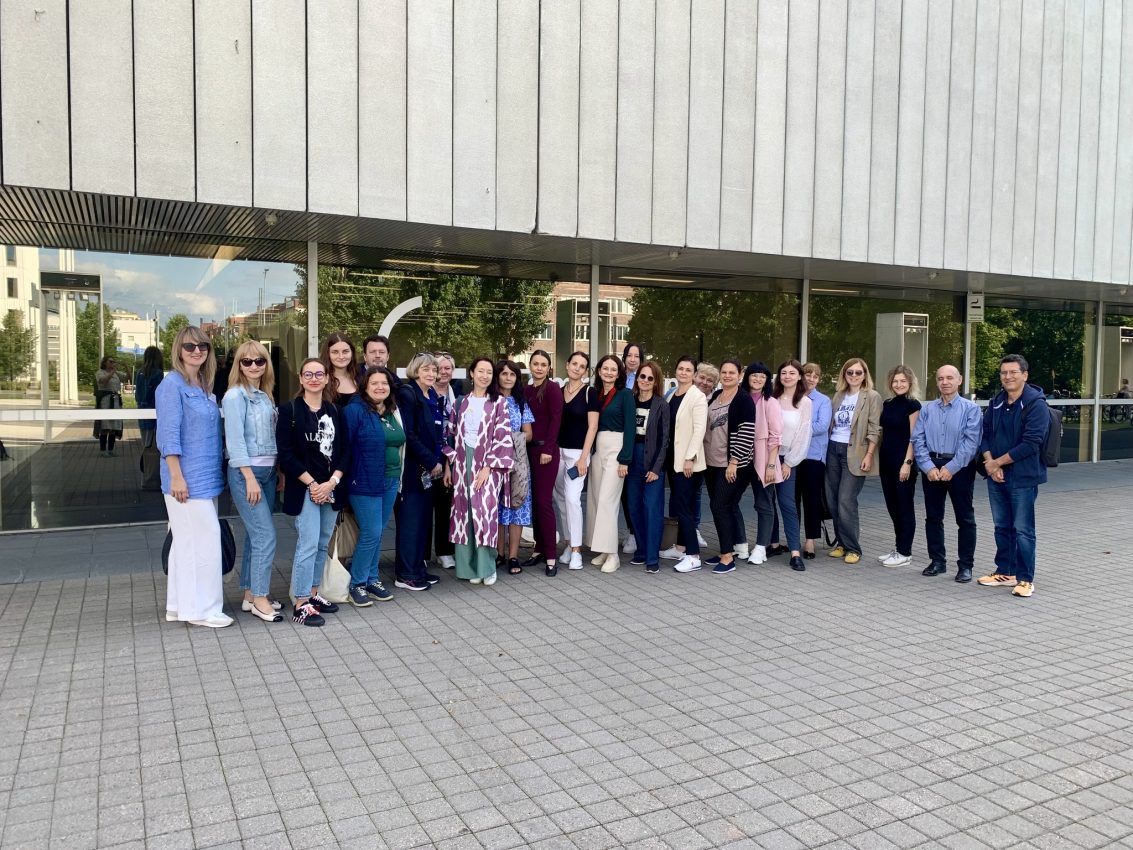
Day 4.
On the fourth day of learning to work in Trados Studio with Mia Santalahti participants learned how to review translations and work with editorial notes.
Lecture Mary Nurminen was devoted to machine translation technologies and the specifics of their impact on the translation profession. The listeners learned about the effective use of tools to achieve high results, potential risks when using such technologies.
Kate Moore held a master class "Why can't we understand what you write? Increasing your chances of getting published.” The specialist emphasized that the use of short, correctly constructed sentences increases the chances of receiving positive feedback from reviewers and permission to publish.
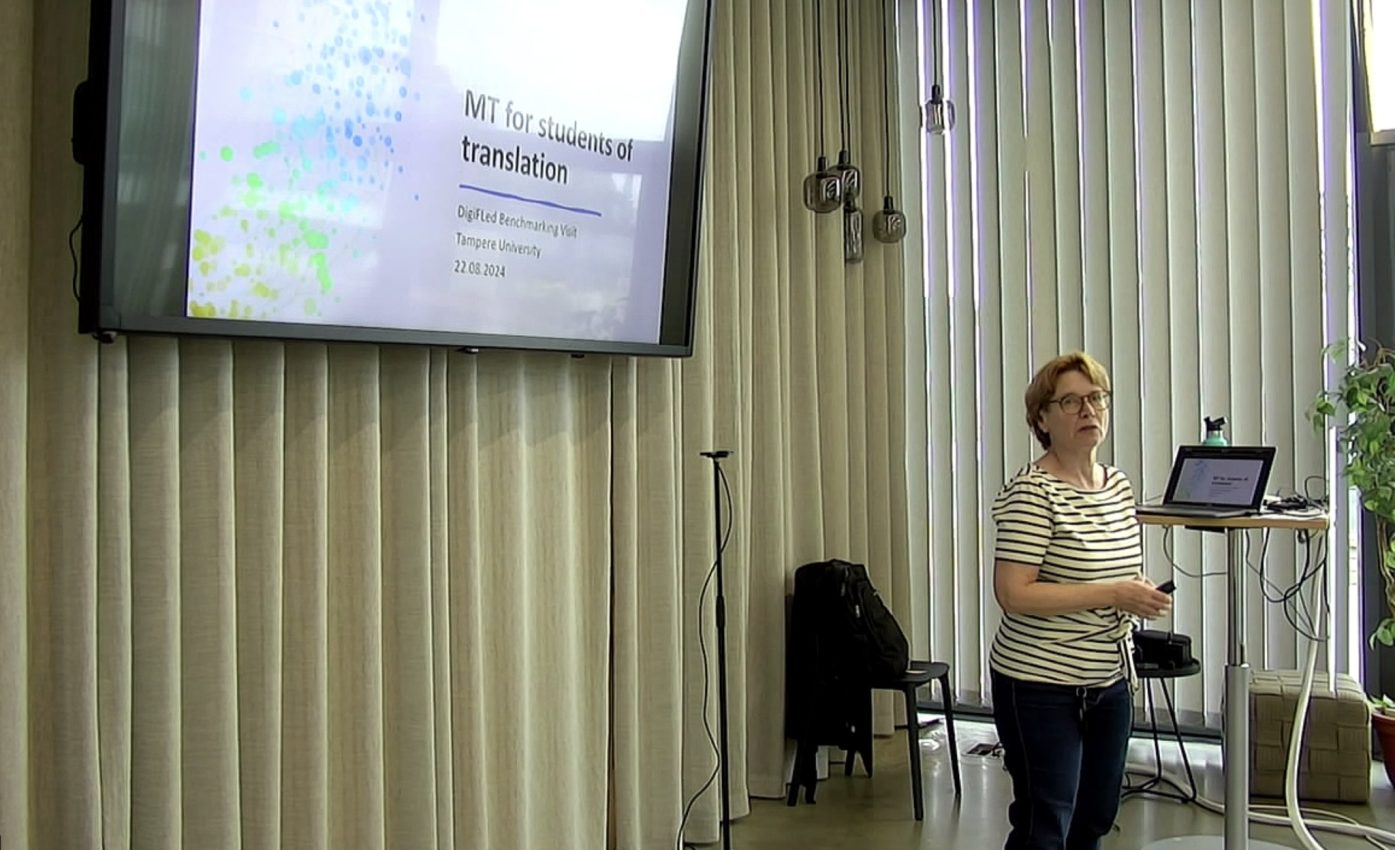
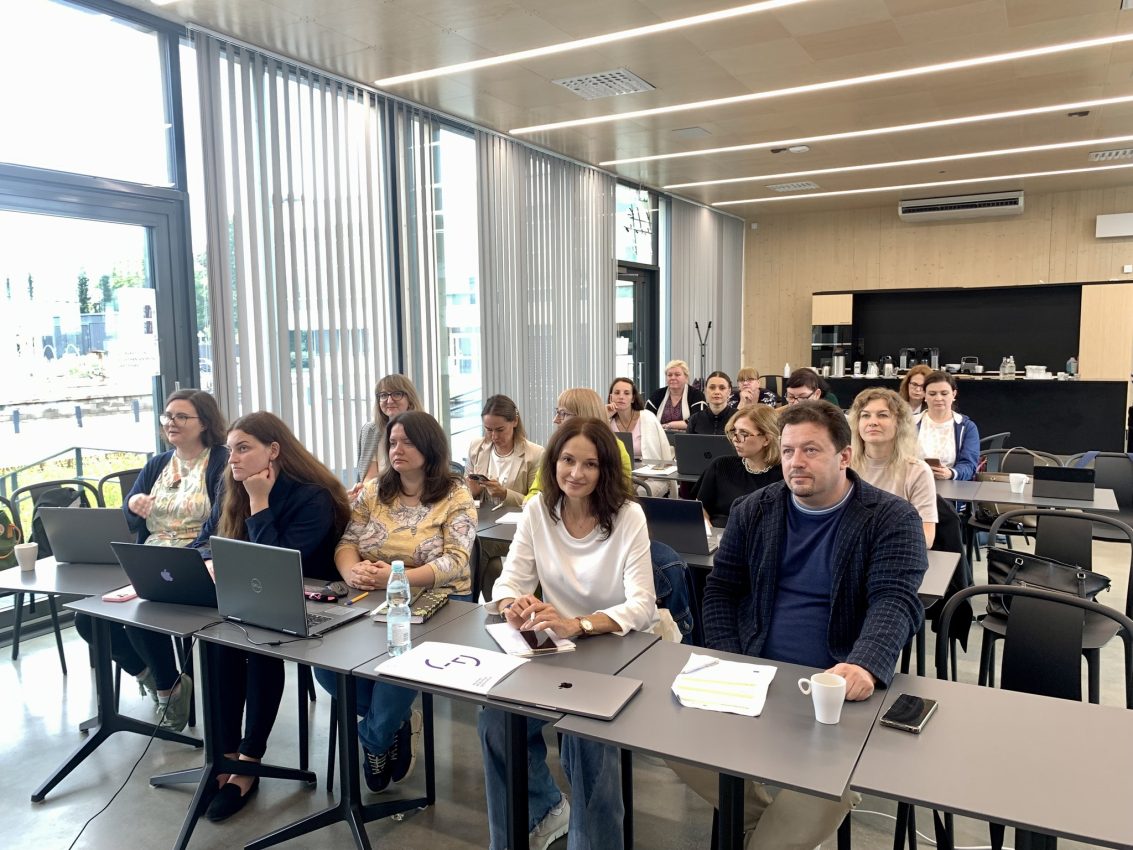
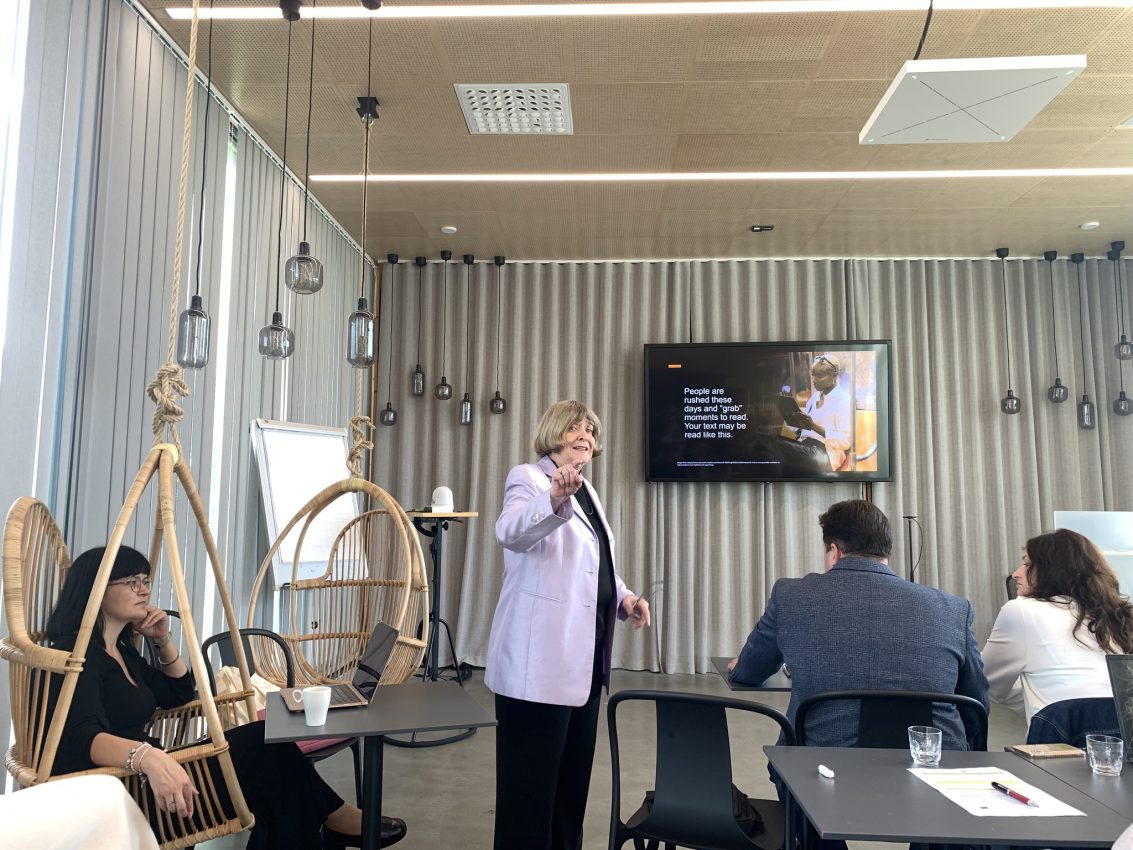
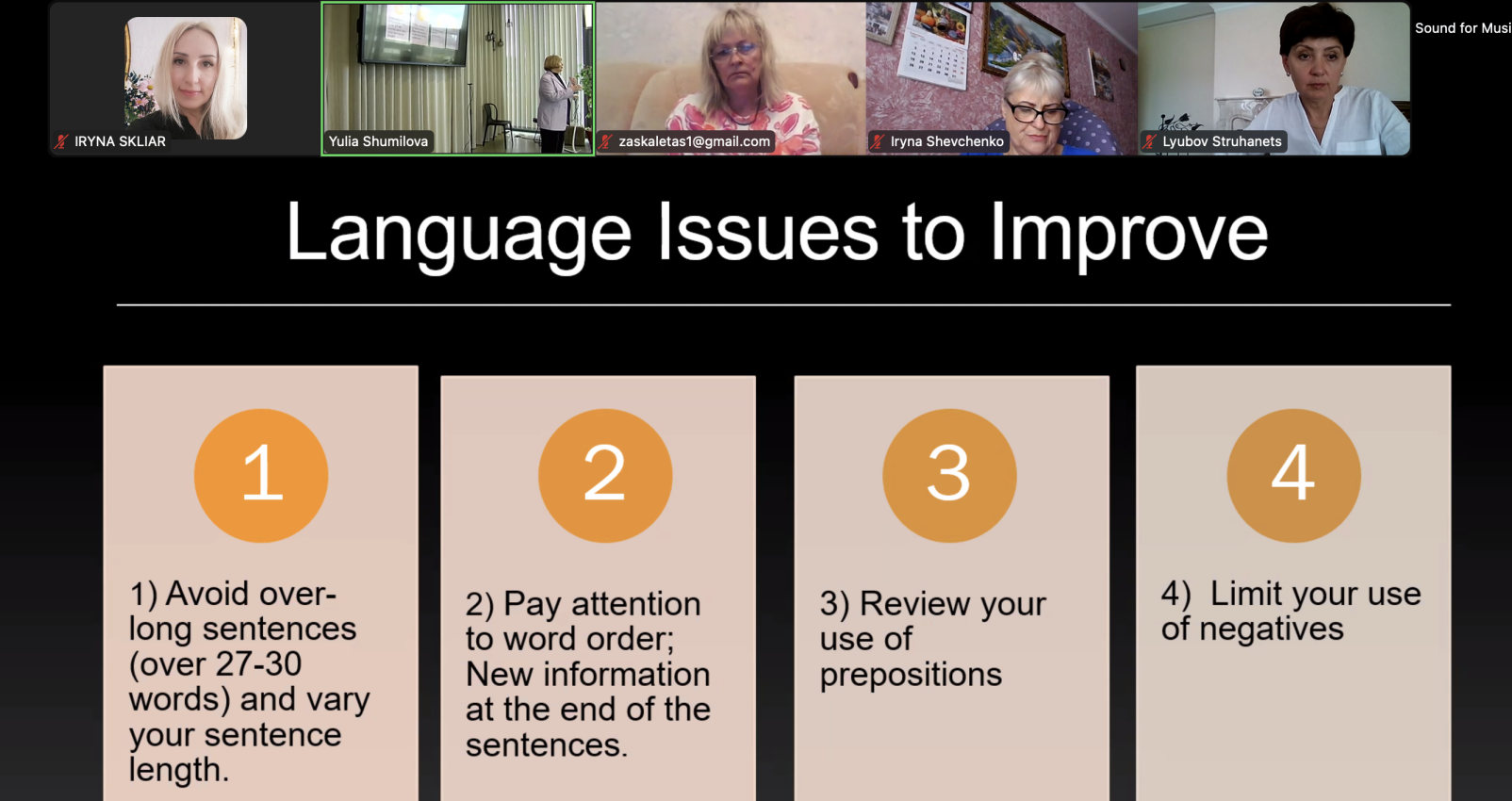
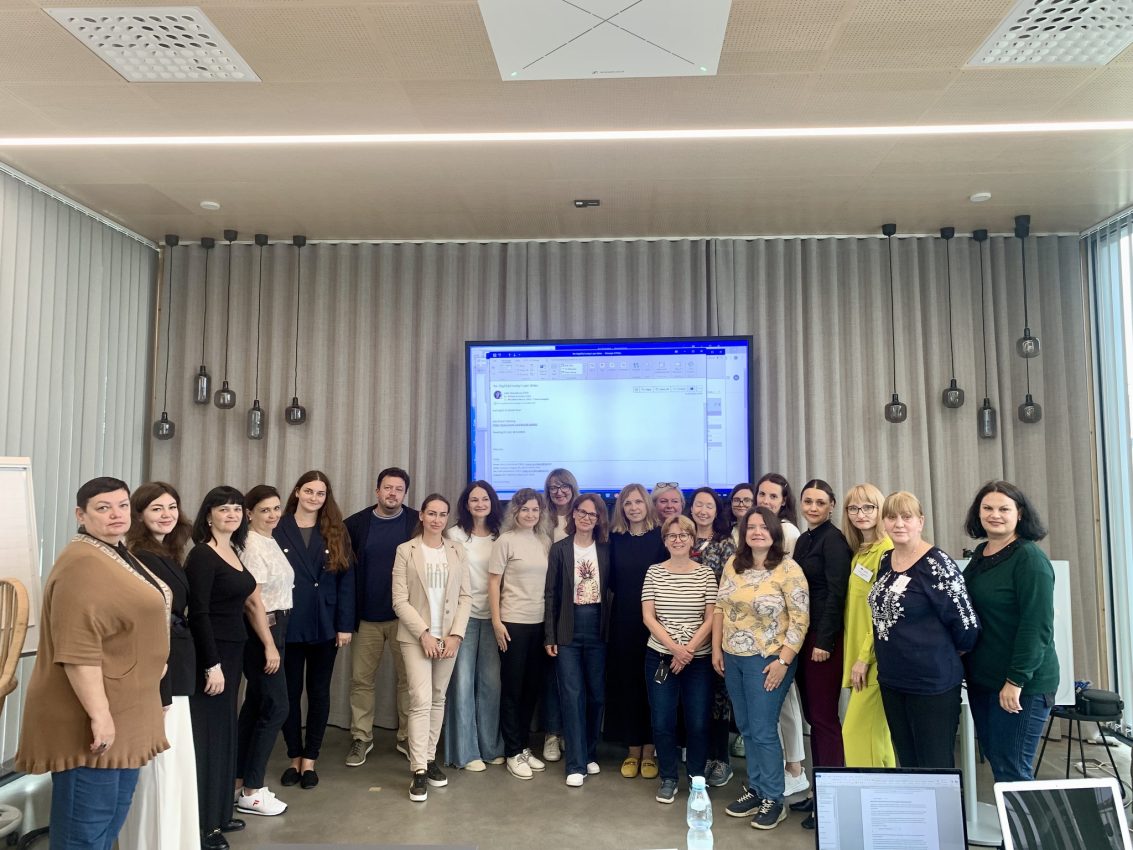
Day 5.
At the final workshop with Mia Santalahti participants practiced creating and using translation memories in the Trados Studio program. Translation memory is a database of previously translated texts that helps automate the translation process. Thanks to the translation memory, you can quickly find translation options for terms and repeated phrases, which makes the work of the translator more efficient.
Presentation Krista Varantola helped the participants to gain a deeper understanding of the importance of ethical compliance in academic research environments and to familiarize themselves with the main provisions of the European Code of Conduct for Scientific Integrity (ECOS2023).
Darrell Wilkinson presented modern digital tools QuizMaker, Revisely, ScreenPal, Worksheetzone, which will allow teachers to create interactive tests, quizzes, and the educational process - more interesting and effective[Ãÿ1] .
At the final meeting of the visit, the participants discussed the results of the training and outlined further steps of cooperation between the partners within the project.
A busy academic week was remembered not only by educational master classes and workshops, but also by an exciting tour of the city, an unforgettable vacation by the lake, a cozy evening boat ride, and a friendly party at "Ukraina Talo".
The GIIM team expresses its sincere thanks to the deeply respected colleagues from the University of Tampere for their invaluable support, knowledge and creation of a creative atmosphere during studies. Cooperation with such recognized specialists became a source of inspiration and new ideas!
